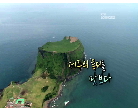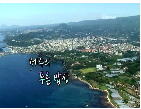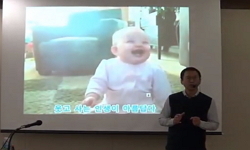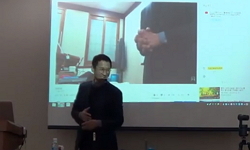본고에서 필자는 제주의 주변성-중앙에서 먼 섬이라는 자연환경과 성리학의 늦은 확산으로 인한 사회문화적 환경-으로 사족 형성이 지체되었을 뿐 아니라 질병 치료를 무당에 의지했던 ...
http://chineseinput.net/에서 pinyin(병음)방식으로 중국어를 변환할 수 있습니다.
변환된 중국어를 복사하여 사용하시면 됩니다.
- 中文 을 입력하시려면 zhongwen을 입력하시고 space를누르시면됩니다.
- 北京 을 입력하시려면 beijing을 입력하시고 space를 누르시면 됩니다.

조선시대 제주의 주변성과 의료 = A Study on the Peripheral Characteristics of Jeju and Medical Culture in the Joseon Dynasty
한글로보기https://www.riss.kr/link?id=A107799012
- 저자
- 발행기관
- 학술지명
- 권호사항
-
발행연도
2020
-
작성언어
-
-
주제어
제주 ; 의국 ; 주변성 ; 사족 ; 사회적 자본 ; 이형상 ; 진국태 ; Jeju island ; the local hospital ; literati ; social capital ; Lee Hyeong-sang ; Jin Guk-tae
-
등재정보
KCI등재
-
자료형태
학술저널
-
수록면
451-483(33쪽)
- 제공처
-
0
상세조회 -
0
다운로드
부가정보
국문 초록 (Abstract)
본고에서 필자는 제주의 주변성-중앙에서 먼 섬이라는 자연환경과 성리학의 늦은 확산으로 인한 사회문화적 환경-으로 사족 형성이 지체되었을 뿐 아니라 질병 치료를 무당에 의지했던 문화적 특징들로 인해, 사족의 자발주의에 기초했던 의국의 지속적 운용이 어려웠다고 주장했다. 선초부터 중앙정부는 제주에 審藥을 파견하여 진상 약재를 관리했을 뿐 아니라 의학교수를 두어 의생을 양성했다. 15세기에는 제주목 관아에 약국을 설치했고, 이는 16세기 중엽까지 유지되었다. 17세기말 제주목사 윤계는 대정현과 정의현의 지방관들과 협력하여 의국 운영을 위한 기금을 마련하고 의국[回春局]을 개설했다. 약국이 주로 중앙에 진상하는 약재 창구였다면, 의국은 제주민을 위해 약재를 무역하고 약물을 제조․공급하는 역할을 담당했다. 그러나 18세기 초까지 운영되던 의국은 18세기 중엽 이후 폐지되었는데 자발적 참여가 아닌 職役으로 운영되자 사족들이 점차 손을 뗀 것으로 보인다. 19세기초 제주의 신임목사들은 의국의 재건을 시도했지만 뜻대로 되지 않았다. 요컨대, 제주 의국은 17세기말에서 18세기 초반에 활발하게 운영되었는데, 윤계나 이형상과 같은 열성적인 지방관과 유의 진국태의 협조가 어우러질 때 가능했다. 특히 이형상은 무당을 철저하게 배격한 후 사족 자제들을 의생으로 길러 의국 운영을 맡길 계획이었다. 하지만 이형상이 제주를 떠나자 바로 신당과 무당의 굿판이 재개되었다. 성리학의 더딘 확산과 사족 형성의 지체로 인한 사회 자본의 결여는 사족 자발주의를 토대로 한 제주 의국의 지속적인 운영을 어렵게 만들었던 근본적인 요소였다.
다국어 초록 (Multilingual Abstract)
Since early in the Joseon Dynasty, the government has not only dispatched doctors to Jeju to manage the medicinal herbs, but also trained medical students. In the 15<sup>th</sup> century, a local pharmacy[藥局] was established in the Jeju government office, which was maintained until the mid-16<sup>th</sup> century. At the end of the 17<sup>th</sup> century, Jeju Governor Yoon-gye worked with two local magistrates to raise funds for the operation of the local hospital[醫局] and open it.
While the local pharmacy was a branch for offering local herbal medicine, the local hospital was responsible for trading medicines and manufacturing and supplying drugs for Jeju residents. As the local hospital that operated until the early 18<sup>th</sup> century were abolished after mid-18<sup>th</sup> century. The local literati gradually withdrew their hands when they were mobilized to operate the local hospital on a duty even if they were not when participated voluntarily. In the early 19<sup>th</sup> century, the new governor of Jeju attempted to rebuild the local hospital, but failed to achieve his goals.
The local hospital in Jeju was most active in the late 17<sup>th</sup> and early 18<sup>th</sup> centuries, when enthusiastic provincial governors such as Lee Hyeong-sang and Yoon Gye, and doctor Jin Guk-tae were combined together. In particular, after thoroughly removing shamanism, provincial governors Lee Hyeong-sang planned to raise local literati as doctors to take charge of the operation of the local hospital. As soon as Lee Hyeong-sang left Jeju, the shaman’s exorcism resumed.
The absence of Neo-confucianism and the slow formation of local literati meant lack of social capital, which became a fundamental factor that made it difficult for the continuation of local hospitals that had been operated on the basis of literati’s spontaneity.
In this paper, I argued that the formation of local literati was delayed due to the peripheral characteristics of Jeju-the natural environment of the island and the socio-cultural environment caused by lack of Neo-confucianism, which made it impossibl...
In this paper, I argued that the formation of local literati was delayed due to the peripheral characteristics of Jeju-the natural environment of the island and the socio-cultural environment caused by lack of Neo-confucianism, which made it impossible for the local hospital to continue, which had been operated by voluntary participation of local literati in Jeju.
Since early in the Joseon Dynasty, the government has not only dispatched doctors to Jeju to manage the medicinal herbs, but also trained medical students. In the 15<sup>th</sup> century, a local pharmacy[藥局] was established in the Jeju government office, which was maintained until the mid-16<sup>th</sup> century. At the end of the 17<sup>th</sup> century, Jeju Governor Yoon-gye worked with two local magistrates to raise funds for the operation of the local hospital[醫局] and open it.
While the local pharmacy was a branch for offering local herbal medicine, the local hospital was responsible for trading medicines and manufacturing and supplying drugs for Jeju residents. As the local hospital that operated until the early 18<sup>th</sup> century were abolished after mid-18<sup>th</sup> century. The local literati gradually withdrew their hands when they were mobilized to operate the local hospital on a duty even if they were not when participated voluntarily. In the early 19<sup>th</sup> century, the new governor of Jeju attempted to rebuild the local hospital, but failed to achieve his goals.
The local hospital in Jeju was most active in the late 17<sup>th</sup> and early 18<sup>th</sup> centuries, when enthusiastic provincial governors such as Lee Hyeong-sang and Yoon Gye, and doctor Jin Guk-tae were combined together. In particular, after thoroughly removing shamanism, provincial governors Lee Hyeong-sang planned to raise local literati as doctors to take charge of the operation of the local hospital. As soon as Lee Hyeong-sang left Jeju, the shaman’s exorcism resumed.
The absence of Neo-confucianism and the slow formation of local literati meant lack of social capital, which became a fundamental factor that made it difficult for the continuation of local hospitals that had been operated on the basis of literati’s spontaneity.
동일학술지(권/호) 다른 논문
-
오구라 신페이(小倉進平)의 조선어 연구는 어떤 의미를 지니는가?
- 인하대학교 한국학연구소
- 야스다도시아키 ( Yasuda Toshiaki )
- 2020
- KCI등재
-
나카니시 이노스케(中西伊之助)와 식민지 조선의 ‘프로문학
- 인하대학교 한국학연구소
- 정종현 ( Jeong Jong-hyun )
- 2020
- KCI등재
-
- 인하대학교 한국학연구소
- 윤미란 ( Yun Miran )
- 2020
- KCI등재
-
한국전쟁과 냉전의 사회과학자들-한국전쟁의 경험은 어떻게 미국 냉전 사회과학의 일부가 되었는가?-
- 인하대학교 한국학연구소
- 정준영 ( Jung Joon Young )
- 2020
- KCI등재




 KCI
KCI KISS
KISS






